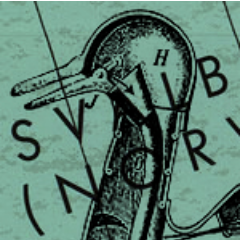 As readers have likely noticed, we’re in the process of shifting from our temporary template to what will likely be our permanent one. Laura S. is still working out some of the glitches created by the shift, such as the fact that our sidebar is displaying below the main blog! It will probably be a bit before everything works properly and we’ve introduced all of the changes associated with the new template. Thanks for your patience.
As readers have likely noticed, we’re in the process of shifting from our temporary template to what will likely be our permanent one. Laura S. is still working out some of the glitches created by the shift, such as the fact that our sidebar is displaying below the main blog! It will probably be a bit before everything works properly and we’ve introduced all of the changes associated with the new template. Thanks for your patience.
A few links:
- The continuing saga of Gallup’s likely voter model as covered by Huffington Post’s Pollster.
- A comparison of NAMA and FROB from A Fistful of Euros — and yes, being a security studies sort I didn’t know what those acronyms stood for until I read the post.
- Juan Cole discusses yesterday’s bombing in Beirut.
- I’m not at all convinced by the list of substantive foreign-policy criticisms that Rosa Brooks opens her column with. However, I find her analysis of the process and personnel problems in the Obama national-security team extremely credible, and deserving of a wide audience. Keep in mind some important caveats. First, some of this is a consequence of inevitable dynamics toward the end of a Presidential term. Academics have to return to their universities and colleges. Many of the best talent isn’t interested in entering an administration when they might be out of a job in 6-12 months. Second, some of the “shops” Brooks points to are much less influential than they were when they attracted international affairs “heavies.” I know of at least one high-quality person who turned down Policy Planning in favor of, at the time, an NSS position. Still, this Administration has earned a justifiable reputation for favoring speeches over directives, for leaving important positions vacant, and for an uneven quality of national-security appointments.
Daniel H. Nexon is a Professor at Georgetown University, with a joint appointment in the Department of Government and the School of Foreign Service. His academic work focuses on international-relations theory, power politics, empires and hegemony, and international order. He has also written on the relationship between popular culture and world politics.
He has held fellowships at Stanford University's Center for International Security and Cooperation and at the Ohio State University's Mershon Center for International Studies. During 2009-2010 he worked in the U.S. Department of Defense as a Council on Foreign Relations International Affairs Fellow. He was the lead editor of International Studies Quarterly from 2014-2018.
He is the author of The Struggle for Power in Early Modern Europe: Religious Conflict, Dynastic Empires, and International Change (Princeton University Press, 2009), which won the International Security Studies Section (ISSS) Best Book Award for 2010, and co-author of Exit from Hegemony: The Unraveling of the American Global Order (Oxford University Press, 2020). His articles have appeared in a lot of places. He is the founder of the The Duck of Minerva, and also blogs at Lawyers, Guns and Money.


That the White House staff is more influential than the State Department can come as a surprise only to a Rip Van Winkle who recently awoke after falling asleep in 1939. Brooks’s points about the personnel who fill these offices are far more valid than her critique of the Obama administration’s simply reenacting what each president since Nixon (at least) (and arguably much earlier) has done.